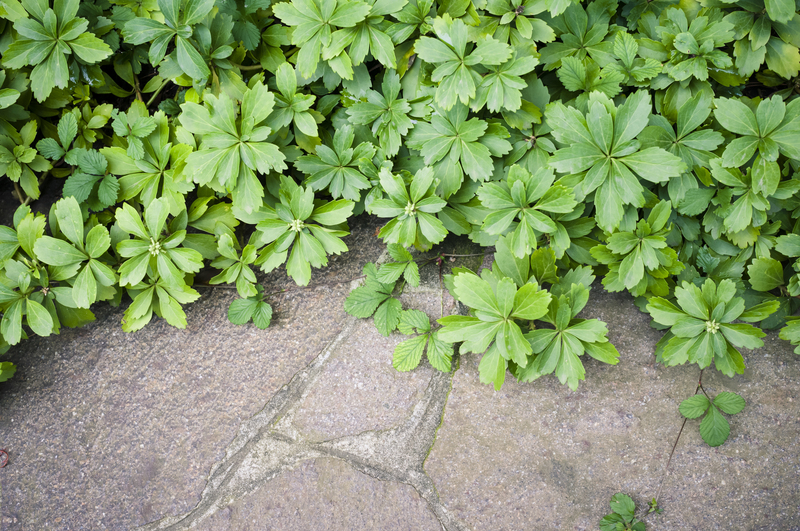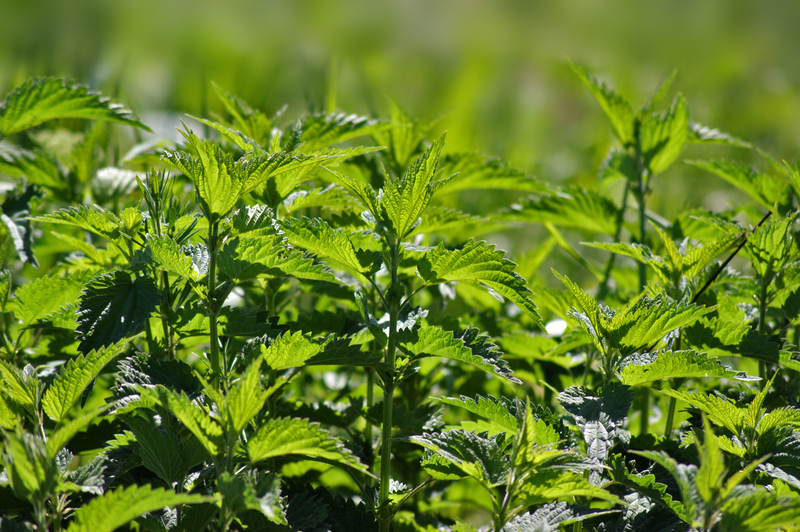Immerse Yourself in the World of Herb Growing Bliss
Posted on 24/05/2025
Immerse Yourself in the World of Herb Growing Bliss: A Comprehensive Guide for Beginners and Enthusiasts
Discover the pure joy of cultivating herbs and unlock a world of sensory delight, culinary potential, and holistic health. From aromatic basil to soothing lavender, embarking on your own herb growing journey can bring tranquility, satisfaction, and an endless supply of fresh flavors right to your fingertips. In this extensive guide, we'll help you truly immerse yourself in the blissful world of herb gardening--whether you're brand new or looking to expand your green thumb.
Why Grow Your Own Herbs?
Herb gardening isn't just a hobby; it's an accessible way to transform your daily life. With just a little effort, you'll experience a wave of benefits that go far beyond simply having fresh leaves on hand.
- Healthier Meals: Fresh herbs enhance nutritional value and flavor, allowing you to cut back on salt and processed seasonings.
- Holistic Wellness: Many herbs impart restorative qualities, from calming stress to aiding digestion.
- Eco-Friendly: Reduce your carbon footprint by skipping commercially packaged and transported herbs.
- Money Saving: A small investment yields big savings over buying bundles at the store.
- Sensory Satisfaction: The visual beauty, fragrances, and textures of herbs uplift any living space.
Immersing yourself in herbal gardening promises a unique blend of practicality and pleasure for body, mind, and soul.

Choosing the Right Herbs for Your Home Garden
Before you dive into the verdant world of herb-growing bliss, it's important to pick plants that will thrive in your space and climate. Here's how to get started:
Assess Your Environment
- Sunlight: Most herbs need 4-6 hours of sun daily. South-facing windows, patios, or balconies are ideal.
- Space: Compact herbs like thyme or chives are great for small containers; larger varieties like rosemary or sage need bigger pots or garden plots.
- Soil & Drainage: Herbs prefer light, well-draining soil. Consider a quality organic mix for containers.
- Climate: Some herbs thrive in warmth--think basil and oregano--while others, like parsley and mint, tolerate mild cold.
Top Easy-to-Grow Herbs for Beginners
- Basil: Sweet, aromatic, perfect for pesto and salads.
- Mint: Refreshing for teas, desserts, and cocktails. Best grown in containers to prevent spreading.
- Chives: Mild onion flavor, excellent for garnishes.
- Parsley: Packed with nutrients and versatile in cooking.
- Rosemary: Piney, robust, ideal for roasting.
- Thyme: Earthy and essential in Mediterranean cuisine.
- Cilantro: A must for salsas and curries--fast-growing but bolts in heat.
Mix and match according to your taste preferences and available space, and you'll soon have an abundant haven of edible greenery.
Starting Your Herb Growing Adventure: Seeds vs. Seedlings
To enrich your herb gardening experience, consider how you'll begin: with seeds or young plants? Each method has its own pros and cons.
Starting from Seeds
- Variety: Grow rare and heirloom varieties not found in stores.
- Cost-Effective: Seeds are usually cheaper than nursery plants.
- Rewarding: Witness every stage of growth for deeper satisfaction.
- Note: Some herbs--like parsley and rosemary--can take longer to germinate.
Opting for Seedlings
- Faster Results: Skip slow germination and enjoy quicker harvests.
- Ease of Care: Less delicate than fragile sprouts.
- Beginner-Friendly: Great for those with less time or experience.
- Tip: Select healthy, green plants free from pests or yellow spots.
Tip: For most novice herb growers, a mix of seeds and seedlings is the best way to learn and enjoy variety!
Essential Tips for Nurturing Happy, Thriving Herb Plants
Cultivating herb growing bliss involves understanding the fundamental needs of your plants. Apply these core principles to set yourself up for success:
- Lighting: Place herbs in direct sunlight. If indoors, use a grow light when natural light is lacking.
- Water Wisely: Herbs dislike sogginess. Water when the soil is dry to the touch, usually 2-3 times a week.
- Prune Regularly: Pinch off tips or harvest leaves to encourage bushier, healthier growth.
- Fertilize Lightly: Feed with balanced liquid fertilizer once a month--too much can diminish flavor.
- Monitor Pests: Expose herbs to air movement and check for aphids or mites. Organically treat any infestations.
- Harvest Strategically: Gather leaves in the morning for the most intense flavor. Never remove more than a third of the plant at once.
Container Herb Gardening Bliss
Container gardening opens the world of herbs to anyone--urban dwellers, renters, and those with limited outdoor space.
- Choose the Right Container: Ensure pots have drainage holes. Terracotta, ceramic, and food-grade plastic are excellent choices.
- Soil Mix: Use a lightweight organic potting mix with perlite or sand for increased drainage.
- Group Wisely: Grow herbs with similar water and light needs together (like rosemary and thyme).
- Rotate: Turn containers regularly for even sun exposure.
Container herb growing delivers maximum flexibility, creativity, and convenience--try vertical stackers, windowsill planters, or even hanging baskets to multiply your harvest!
Harvesting, Preserving, and Using Your Fresh Herbs
The joys of immersing yourself in herb gardening reach their peak when you start harvesting aromatic sprigs for use in your kitchen, medicine cabinet, or home decor. Follow these tips to maximize both flavor and longevity:
How and When to Harvest
- Basil, Mint, and Oregano: Pinch out stem tips to encourage bushiness.
- Parsley and Cilantro: Cut stems close to the base; they'll regrow rapidly.
- Rosemary and Thyme: Use sharp scissors to snip woody stems. Avoid cutting into ultra-old growth.
Always harvest just before your herbs bloom; this is when their essential oils and flavor are at their peak.
Simple Ways to Preserve Herbs Year-Round
- Drying: Hang small bunches upside down in a cool, airy spot until crisp.
- Freezing: Chop herbs, add to ice cube trays with a bit of water or olive oil, and freeze for easy use in soups or sauces.
- Herb Butters and Pestos: Combine fresh herbs with butter or oil-based sauces, then freeze in small batches.
- Vinegars and Oils: Infuse your favorite flavors for gourmet gifts and homemade dressings.
Culinary Inspirations: Bringing Herbal Bliss to Your Table
With your herb garden in full swing, experiment with:
- Salads: Add bright flecks of basil, dill, and chervil to green salads for a herby twist.
- Infused Waters: Drop mint, lemon balm, or sage into pitchers for refreshing drinks.
- Herbal Teas: Grow chamomile, lemon verbena, or mint for soothing brews.
- Seasonings: Create custom dried blends, infused salts, or compound butters.
- Bakes and Roasts: Enhance bread, roasted veggies, or grilled meats with rosemary, thyme, or savory.
Every meal becomes a creative adventure when you can pluck fresh, flavorful ingredients straight from your own garden!
Healing Power: Herbs for Health and Home
Beyond their culinary magic, herb growing bliss extends to natural remedies and heavenly home scents.
- Lavender: Promotes relaxation, relieves headaches, and makes an excellent drawer sachet.
- Chamomile: Brew for calming tea or soothe itchy skin.
- Thyme: Antimicrobial; useful in home cleaning products and steam baths.
- Lemon Balm: Eases stress and invites pollinators when planted outdoors.
Consider crafting your own herbal tinctures, infused oils, or natural salves as you get more comfortable in your herbal journey.

Common Challenges and Pro Tips for Beginner Herb Growers
While the path to herb growing delight is straightforward, you may encounter a few obstacles:
Common Problems
- Leggy Plants: Often caused by insufficient light. Move pots closer to a window or supplement with grow lights.
- Wilting: Usually a result of over or under-watering. Check soil moisture before watering.
- Pests: Aphids, whiteflies, and spider mites can be washed away with a gentle spray or treated organically.
- Yellow Leaves: May signal too much water or poor drainage. Adjust watering and ensure proper soil aeration.
Bonus Tips for Thriving Herb Gardens
- Rotate crops annually: Prevents disease build-up in garden beds.
- Companion planting: Grow basil with tomatoes, or cilantro with leafy greens, to maximize growth and deter pests.
- Enjoy the process: Don't be afraid to experiment, make mistakes, or expand your collection! Every season brings more to love.
Embrace Herb Gardening Bliss: Start Your Journey Today
Ready to experience the transformative power of growing your own herbs? Whether you crave the freshness of home-grown basil on your pizza, a calming cup of chamomile tea, or simply the satisfaction of tending living beauty, herb gardening offers unmatched rewards. With every planted seed, clipped sprig, or fragrant bouquet, you'll find a deeper connection to nature and to yourself.
Immersing yourself in the world of herb growing bliss is easier than ever. All it takes is a little curiosity, a sunny spot, and a handful of seeds--or young plants--to start your journey. Begin today, and unlock the extraordinary pleasure of nurturing, harvesting, and enjoying your very own garden of delights!
Your Herb Growing Bliss Awaits -- Happy Gardening!
Latest Posts
9 Top Ground Covers for a Lush UK Garden
From Backyards to Biospheres: Gardening's Climate Change Mission
Little Discoveries: Mastering Child-Friendly Garden Designs

